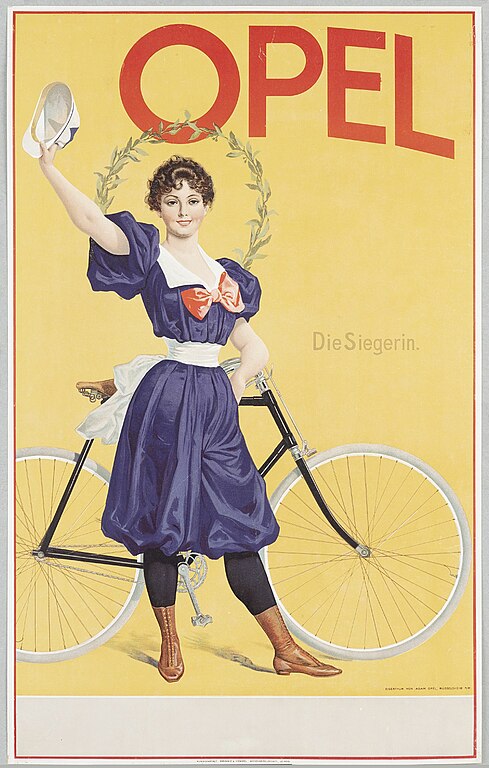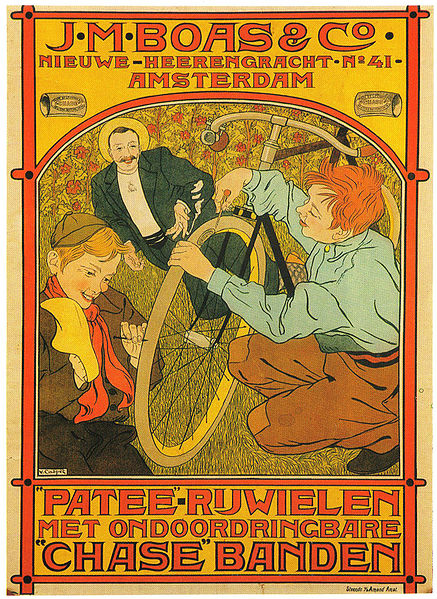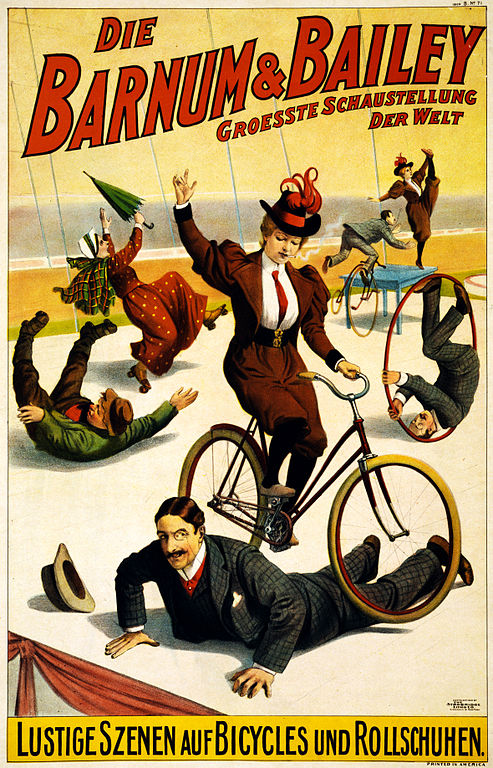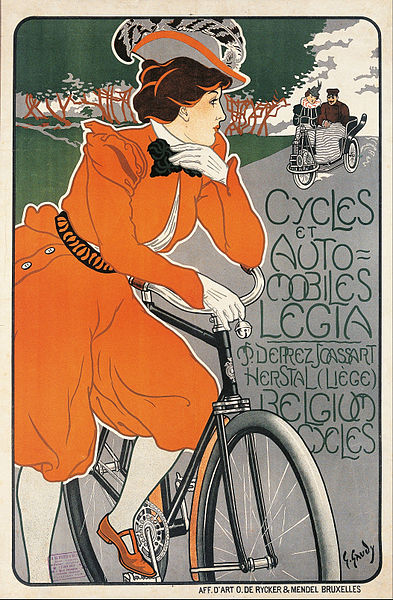
Each 3 June is celebrated by the United Nations (UN) as World Bicycle Day.
The Thammasat University Library owns a number of histories of, and guides to, the bicycle.
As the UN website explains,
The mobility needs of people who walk and cycle – often the majority of citizens in a city – continue to be overlooked, states Share the Road Programme Annual Report 2018. Even though the benefits of investing in pedestrians and cyclists can save lives, help protect the environment and support poverty reduction. Meeting the needs of people who walk and cycle continues to be a critical part of the mobility solution for helping cities de-couple population growth from increased emissions, and to improve air quality and road safety.
According to the World Health Organization (WHO), safe infrastructure for walking and cycling is also a pathway for achieving greater health equity. For the poorest urban sector who often cannot afford private vehicles, walking and cycling can provide a form of transport while reducing the risk of heart disease, stroke, certain cancers, diabetes, and even death. Accordingly, improved active transport is not only healthy; it is also equitable and cost-effective.
Why celebrate the bicycle?
- The bicycle is a simple, affordable, reliable, clean and environmentally fit sustainable means of transportation;
- The bicycle can serve as a tool for development and as a means not just of transportation but also of access to education, health care and sport;
- The synergy between the bicycle and the user fosters creativity and social engagement and gives the user an immediate awareness of the local environment;
- The bicycle is a symbol of sustainable transportation and conveys a positive message to foster sustainable consumption and production, and has a positive impact on climate.
World Bicycle Day:
- Encourages Member States to devote particular attention to the bicycle in cross-cutting development strategies and to include the bicycle in international, regional, national and subnational development policies and programmes;
- Encourages Member States to improve road safety and integrate it into sustainable mobility and transport infrastructure planning and design, in particular through policies and measures to actively protect and promote pedestrian safety and cycling mobility, with a view to broader health outcomes, particularly the prevention of injuries and non-communicable diseases;
- Encourages stakeholders to emphasize and advance the use of the bicycle as a means of fostering sustainable development, strengthening education, including physical education, for children and young people, promoting health, preventing disease, promoting tolerance, mutual understanding and respect and facilitating social inclusion and a culture of peace;
- Encourages Member States to adopt best practices and means to promote the bicycle among all members of society, and in this regard welcomes initiatives to organize bicycle rides at the national and local levels as a means of strengthening physical and mental health and well-being and developing a culture of cycling in society.

Thailand and cycling
TU students may be familiar with the Thai Cycling for Health Association.
Its website notes:
The Thailand Cycling Club or Thai Cycling for Health Association was established on the 16th of March 1991. On that day about 40 cycling enthusiasts, who agreed to make cycling a new choice for solving problems of local traffic, air pollution and energy consumption, rallied on Bangkok streets together for the first time in Thailand. The purpose of the rally was to reintroduce this environmentally friendly vehicle to Thai society. 17 years later those some forty people turned out to be a more than 5,000 strong group of people of all walks of life, age, occupation, rank and position.
Complete families have joined our club and many children of members enjoy biking and camping. A large proportion of our members are ladies both married and unmarried, who enjoy a chance to explore Thailand safely at a cost lower than any tour company. We join up with cycling clubs local to the places visited and as a result enjoy local hospitality and see places which would be difficult without local knowledge.
Very soon we can claim that not a corner of Thailand remains unexplored by our members.
They are all members of the so-called “Bicycle Community” or “Bicycle Family”.
On the more serious side it should be noted, that TCC is not against bicycle racing. In fact, we actually support it. But along that line, we also have the ‘social-service’ missions that we think are more important than racing, such as organizing various activities to convince government on the bicycle option, bike rallies for our political awareness campaigns, such as election and transparency or accountability, drug fighting as well as Tod Pha Pa ( a Buddhist ceremonial event of giving robes to monks) and eco tourism, etc.
The Old Bicycle Recycle Project is a frequent social activity which ranks , very high among TCC members. We collect scrap bicycles and then our club members buy items for repair and for replacement of major components. After which we transport the bikes to rural schools and let the kids fix the unfinished minor parts and, finally, give the re-born bikes to these deserving kids. We usually camp at these schools and enjoy riding with the children.
We have also raised money by means of biking events to assist underprivileged children.
If you are a bicycle lover or enthusiast, every-day cyclist or bike commuter you are welcome to join the TCC family. be a part of it and be useful to society. Therefore join the TCC / TCHA!

Other advocacy and sports organizations include the Thai Cycling Association and the Thailand Cycling Club (TCC).
Its website offers the information that TCC was founded
on March 16, 1991, when about 40 Thais who loved cycling and saw in common that use of cycle as an alternative mode of transport would help solve traffic, pollution, energy and health problems, came to campaign together on the streets of Bangkok to draw attention of the public and policy makers to this environmental friendly vehicle for the first time. Since then TCC has been working continuously, drawing people from all walks of life to take part in our diverse activities, and become a community of bicycle users in Thai society. Vision Walking and cycling is popular in Thai society. Mission Advocate for policies, laws, systems and structures that promote, support and facilitate walking and cycling in daily life, while changing values and behaviours of people in Thailand to walk and cycle regularly. This advocacy is to be driven by both knowledge and information from academic research and studies, on one hand, and social activities, on the other. Cooperation with political groups/parties, related government agencies, and the administration, particularly local administrative organizations, is also sought after.
Objectives:
- To promote walking and cycling in daily life.
- To promote holistic good health through walking and cycling in daily life.
- To promote walking and cycling as a means to tackle pollution, global warming and climate change problems and for conservation of natural resources, environment and energy.
- To promote walking and cycling to solve traffic problems.
- To do activities for public interest.

(All images courtesy of Wikimedia Commons)
